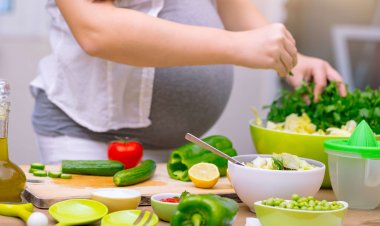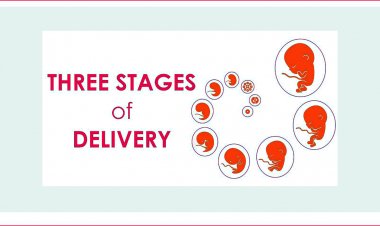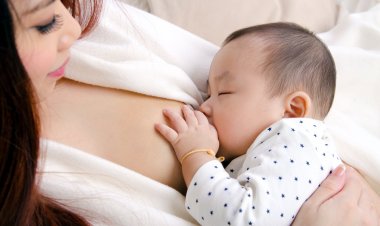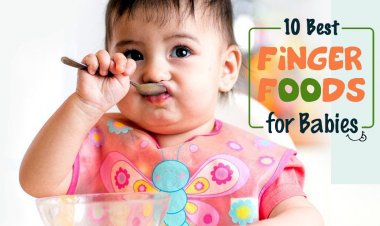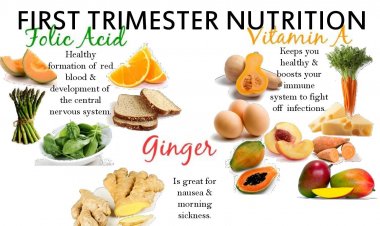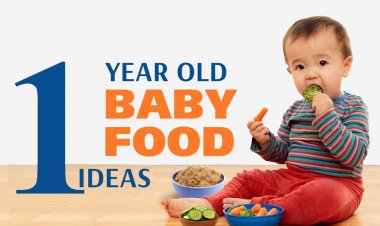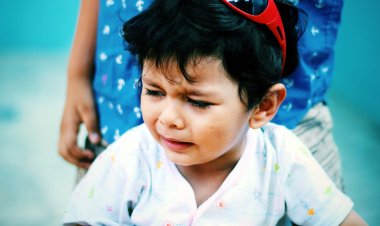Food Allergies in Babies: Causes, Symptoms, Diagnosis and Treatment
The time of introducing a baby to liquids followed by solids is an exciting time for every parent. During this time, due to the consumption of certain foods, the child's body starts showing red rashes and other symptoms. Actually, it is a food allergy, which children start having after consuming certain foods. In such a situation, it is important for parents to know about food allergies before introducing solid food to their children. That is why in this article of MyBabyCare, we have brought all the information related to food allergies in children and babies. Find out here whether it is normal for children to have food allergies and what are its symptoms, causes, and treatment.

What is a food allergy?
Food allergy is the reaction made by the immune system to the proteins present in the food. Immune abnormal reaction in the form of allergy in the body after consuming certain foods. This abnormal reaction can affect all parts of the body. This reaction can range from mild rashes to abdominal pain. Sometimes allergies can also cause a life-threatening complication, which is called anaphylactic shock. This is a severe allergic reaction by the body.
Find out below whether a newborn may have a food allergy.
Can Young Children Have Food Allergies?
Yes, young children can have food allergies. According to statistics, about 5 to 7.5 percent of children suffer from this problem. Research shows that about 6 percent of children develop food allergies in the first three years of life. In this, about 2.5 percent cases are due to cow's milk, 1.5 percent cases to eggs, and about 1 percent cases are due to peanut allergy. Studies have shown that peanut allergies have increased significantly over the past decade.
Continue reading to know more about the symptoms of food allergy in children.
Symptoms of food allergies in children
There may be some common symptoms of food allergies in children, which we are describing below.
- Itching or swelling in the mouth
- Vomiting, diarrhea, or stomach cramps
- Stomach ache problem
- The problem of hives (round red spots on the skin) or eczema is a skin allergy
- Feeling of tightness in the throat
- Sore throat and shortness of breath
- Diarrhea, gas, and nausea in young children
Read more What can cause food allergies in babies.
Causes of food allergy in baby
It is also important to know why babies get food allergies. However, there is no clear reason for this. Yes, an immune response alone is known to cause a food allergy. In fact, skin allergies are caused by an abnormal reaction of the immune system to the proteins present in certain foods. Immune reacts adversely to this protein by considering it bacteria, virus, and infection, below we are telling about this topic.
Now know which babies are more prone to food allergies.
Which children are more prone to food allergies?
Although it is common for children to have food allergies, it is more common in children whose family has already had a problem with food allergies.
Read below that children can be allergic due to things.
What foods can cause allergies in children?
Children may have a problem of food allergy due to the following foods:
- Milk
- soy
- Wheat
- Egg
- Tree nuts (almonds, walnuts, pecans, and cashews)
- fish
- shellfish
- Groundnut
How to diagnose food allergies in children?
To diagnose food allergy, the doctor first examines the symptoms seen in the child. The doctor may then recommend the following allergy tests:
Oral Challenge Test: During this test, the child is given a small amount of capsules or injections of foods that often cause allergies in the child. After this, the doctor closely observes the reaction of that food item and then treatment is done immediately based on the reaction in the body.
Blood test: The amount of immunoglobin E ie IgE antibody present in the blood is measured at the time of blood test. If food allergies occur, the immune system produces IgE antibodies. In such a situation, it becomes clear from the blood test whether there is an allergy or not.
Elimination Diet: This test is done to find out which food or food item is causing the allergy. The doctor recommends eliminating allergenic foods from the child's diet every week. It is also found out whether the child has a food allergy or a problem with food intolerance.
Skin prick test: In this, small amounts of allergenic food are put under the top layer of the skin. Then based on the reaction in that skin, it is ascertained whether the child is allergic to that food or not.
Problems caused by food allergies in children
Food allergies can cause some problems for the baby. Here we are telling about the same problems caused by food allergies in the child.
- Skin problems: Children may experience skin problems such as rash, hives (rounded red patches on the skin), tingling, itching and redness due to food allergies.
- Digestive system problems: Food allergies can cause abdominal pain, swelling of the mouth and tongue, and itching.
- Respiratory system problems: A child with a food allergy can develop coughing, wheezing, stuffy nose, difficulty in breathing and tightness in the chest.
Learn more about what to do if a child is allergic to a food item.
What to do if a child shows an allergic reaction to a food?
If a child is having an allergic reaction to any food item or food, then he should be taken to the doctor immediately. The doctor can identify the food that causes the allergy and refuse to give it to the child.
Scroll through to find out how baby food allergies are treated.
How are allergies treated in children?
There is no exact cure for food allergy. Yes, to relieve its symptoms, the doctor may recommend something like:
- Changes in diet – The doctor may recommend removing allergy-causing foods from the child's diet.
- Antihistamine medication – Oral antihistamine medication can be used to treat allergy symptoms. This medicine can be given at home after consultation with the doctor.
- Auto-injectors – If the child is at risk of anaphylactic shock (a severe allergic reaction affecting the whole body), the doctor may give a small device called an auto-injector to use in an emergency. This is followed by a dose of epinephrine, which can reduce an allergic reaction.
Can you protect your child from food allergies?
There is no sure way to prevent food allergies. Nevertheless, this problem can be reduced to some extent by the following efforts:
- If possible, breastfeed your baby from infancy.
- You can start giving solid food to the baby from four months.
- Continue to breastfeed the baby while feeding solid foods.
- At the very beginning, feed the baby with foods that are prone to allergies such as cow's milk, eggs, peanuts, tree nuts, soy, sesame, wheat. According to the study, this can protect the child from the possibility of food allergy.
- Even after paying attention to all these things, if the child has got a food allergy, then avoid giving him allergy-causing foods and consult a doctor.
Now you must have understood that it is normal for newborns and babies to have food allergies. Just be careful while giving solid food to your baby. This will make it easier to understand which things your baby is allergic to. As soon as this problem is detected, avoid giving those particular foods to the baby and contact the doctor. Many times people confuse food sensitivity and food allergy. For this reason, it is important to go to the doctor to understand whether the child has a food intolerance or a food allergy.

 mybabycare
mybabycare 







